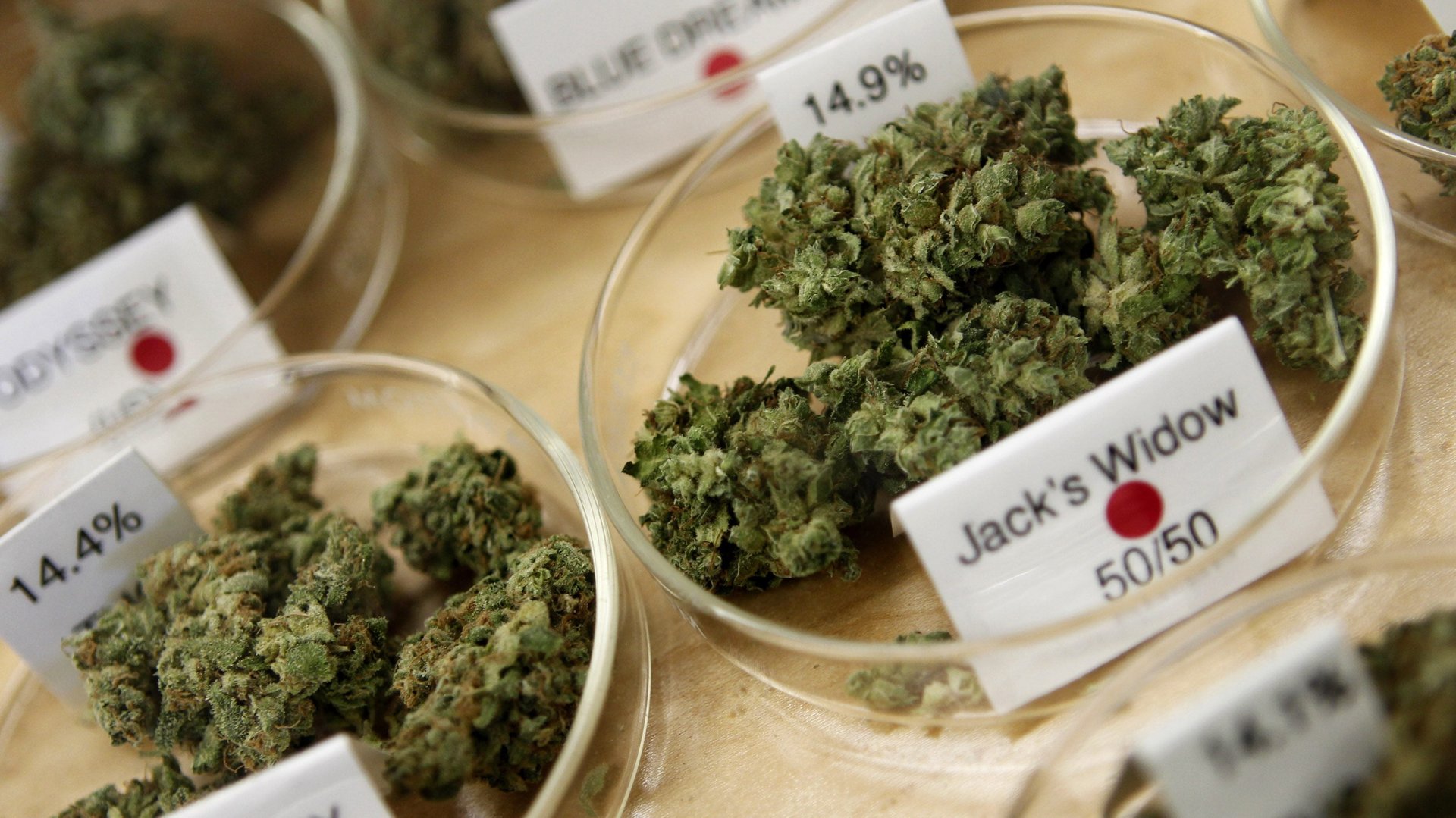Uber has entered the weed market
You can order food, groceries, alcohol—and now, weed—on the Uber Eats app in Ontario, Canada.


You can order food, groceries, alcohol—and now, weed—on the Uber Eats app in Ontario, Canada.
Uber is partnering with cannabis retailer Tokyo Smoke, allowing users to place an order on the Uber Eats app and pick it up in store. But delivery is not available yet. In Ontario, while weed can be delivered by retailers, third-party delivery from services like Uber Eats is not yet legal in Canada.
Items will be ready for pick-up within an hour of them being placed, according to a press release. When customers arrive to pick up their order at the store, they will be required to show their ID, as required by regulations.
Uber, which is headquartered in San Francisco, was non-committal about further expansion of its marijuana delivery business. “As we learn from this partnership in Ontario, we’ll continue to watch regulations and opportunities closely market-by-market,” a company spokesperson said by email. “And as local and federal laws evolve, we will explore opportunities with merchants who operate in other regions.”
For now, Uber has moved into alcohol delivery in the US, which comes with its own set of regulatory hurdles. In February, the company announced it would buy Drizly, an alcohol delivery company, for $1.1 billion in stock and cash. But the acquisition did not include Drizly’s subsidiary Lantern, a cannabis delivery company.
Weed is now part of a global delivery service
As delivery has become mainstream during the pandemic, Uber and other food delivery companies—which remain unprofitable—have expanded to other categories beyond food.
The cannabis business is booming, making it an attractive market. The global legal marijuana market is expected to hit $70.6 billion by 2028, according to Grand View Research, a market research firm. In April, sales of recreational cannabis across the states California, Colorado, Oregon, and Alaska, were up almost 50% from the prior year, according to Flowhub, a cannabis research firm.
At least 17 states, along with Washington DC, have legalized cannabis for recreational use. The changing landscape coincides with the increasing public support for it: Most Americans say marijuana should be legal for medical and recreational use, according to a Pew Research survey in April.
But regulatory obstacles continue to be an issue for big delivery companies. Uber CEO Dara Khosrowshahi said in April he would consider cannabis delivery once US federal laws allow the company to do so in the US. DoorDash CEO Tony Xu echoed a similar sentiment. In September, Amazon announced it is actively lobbying the federal government to make weed legal nationwide in part due to the mismatch of rules around legalization and to reduce one of the hiring hurdles of drug testing.
The logistics of cannabis delivery are also not clear cut. For instance, dispensaries are not uniform in product availability, pricing, or delivery fee. Legal weed delivery is available with no restrictions in states like California, Nevada, and Oregon, but each state also has its own set of rules; for instance, in California, the dispensary must employ the delivery driver and the vehicle must be enclosed, so no scooters, bikes, or motorcycles.
That said, legal cannabis delivery is a burgeoning market in the US, with numerous marijuana companies like MedMen or Eaze already offering services, with the latter recently expanding to Detroit.